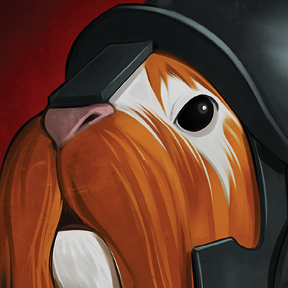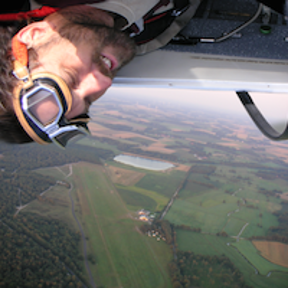Welcome to the Onshape forum! Ask questions and join in the discussions about everything Onshape.
First time visiting? Here are some places to start:- Looking for a certain topic? Check out the categories filter or use Search (upper right).
- Need support? Ask a question to our Community Support category.
- Please submit support tickets for bugs but you can request improvements in the Product Feedback category.
- Be respectful, on topic and if you see a problem, Flag it.
If you would like to contact our Community Manager personally, feel free to send a private message or an email.
Best Of
Add fonts
Is there any way to add fonts for the text tool? In particular, I would like to add one of my stenci
Re: How to programmatically find faces which define the entry and exits for a hole?
There are two queries that might help you:
qHoleFaces(seed); → this will filter a query of faces to those that belong to a hole
qAdjacent() → this will take a seed query and find the faces that are adjacent to all of the given entities.
If you take your hole faces and find the adjacent faces, those are the "boundary" faces.
Re: One or more tabs being moved contain workspace references. All referenced tabs will be moved as part
Make a copy of your document, try it, see what happens! :)
It just means that the tab you are moving to another doc has other tabs that depend on it, so for example if you were moving a part to another document and you had a drawing of that part in another tab then, if the part moved and the drawing stayed, the drawing would fail, because the part wasn't there any more. So Onshape will move the part and the drawing into the new doc.
Re: One or more tabs being moved contain workspace references. All referenced tabs will be moved as part
Well, in my experience this note means you can still move the part if you really want to, but be prepared to be left with an even bigger mess than when leaving this part in it's inappopriate location.
I find this situation annoying, even if there is a logical explanation. There are situations where I have designed a part as part of a certain project and only later find out I might need it in another place or even for another project. Then, one would possibly want to move a certain part to it's own document for later use. Now, it dosen't work that easily. It gets even more confusing, if something has been designed in context, with a reference to the part moved. You never know what will be moved along with the part in question.
Since I tried this a few times with limited success, I try to remember always designing supplier parts and such in their own documents from the ground up, but sometimes I forget, or I get such parts in imported files. One example of such are switches and buttons, which will get references to cutouts in some mounting plate rather sooner than later. In my opinion, it is usually easier and more sustainable, to recreate (maybe based on stripped down copy) these parts in their own workspace, and then replace in assemblies where they have been used.
Maybe it would be a good thing, if parts could be copy-moved, stripping their downstream references, keeping the original document intact, just to get around this.
Re: Untrim?
Yes. Creating a new surface is nice, though it kind of breaks the chain. A feature which keeps the ID and continuity in the design process would sure be perferable, especially if we could go back when needed and untrim another side or remove or restore another internal edge.
I've been working with Spaceclaum for quite some time, an there, it was one tool that simply removed all trims when applied to a face (you got to hit it in the middle) and removed trim of one edge, extending adjacent edges when applied to that edge (you had to click on the portion of the edge you wanted to untrim).
There also was the 'Pull' tool that had an interesting functionality: You'd pull on a trimmed edge to gradually pull it back to it's untrimmed state in the first go. Pulling on the untrimmed edge another time would extend (extrapolate) it gradually as far as mathematically possible. That was very useful and very intuitive at that.
Re: Working With Outside Designers
Indeed this is an area yet to be addressed, yes it's easy to share and invite people into your Environment, but the fact that you would have to allocate one of the users accounts to someone that is already a paying user, seems very counterintuitive.
Re: Part number embossed on part?
As it turns out, even FS can't save you here as all of the part properties generate after the feature list, so PNs aren't accessible to a custom feature (unless that feature is also setting the PN). I think it would need to be something with the API that reads it and updates a variable every so often. I've wanted something like this for a similar purpose. For example, if I'm iterating on 3D printed mockups and changing each one, I'd like to have the version number and date automatically added.
Part number embossed on part?
This just came up when discussing a current project on the shopfloor: Is there a way to more or less automatically emboss/imprint a part number (or some other part property from the BOM) onto a part? Maybe at a location specified by a mate connector or whatever marker may appear useful? At first glance, this appears to be a job for a FS …
The background is the shop messed up similar looking 3D printed and laser cut parts. 🤣
Re: How to create this specific mate ?
After having a closer look, you don't even need a tangent mate, you just need to put some mate connectors in well placed spots to allow for a sliding mate paired with a revolution mate. The sliding mate could have limits so that when the actuator gets near the red arm, it starts to hit the slider limit in turn pushing the red arm the correct direction.
Will need access to copy the document for further guidance.
Re: How to create this specific mate ?
My bad, I was thinking that the sharing link allows writing. I've changed the document to public, so you should be able to play with it now. Let me know if it's ok.
I've tried various configuration of sliding edges but none has worked. But I'm far from an OnShape expert, having used it until now to model simple mechanisms composed of 3D printed parts.







